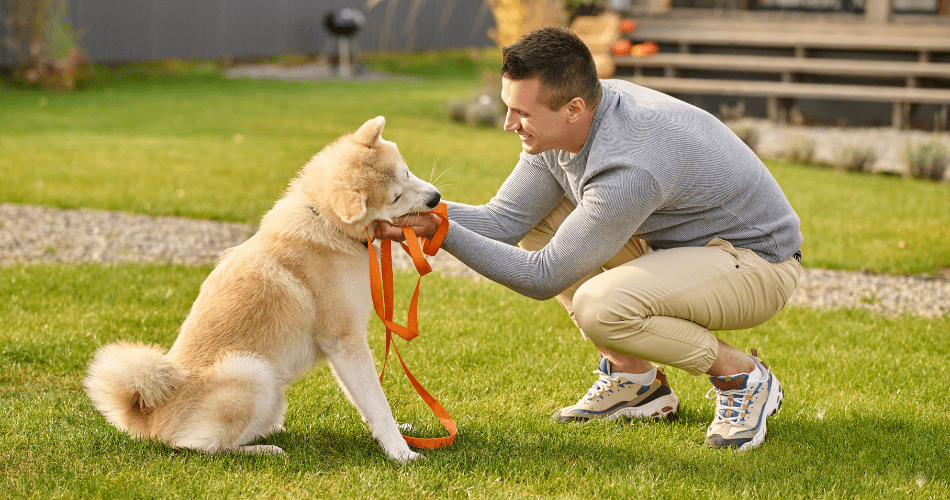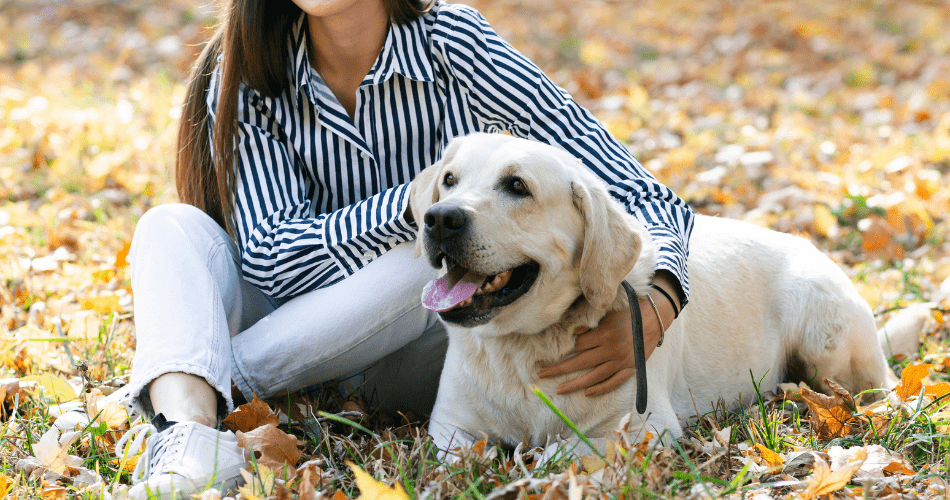Dogs will bark when they see strangers or people they don’t know, and barking too much can be irritating and disturbing. It is crucial to understand how to stop your dog from barking at neighbours in order to address this issue.
Dogs who live in busy areas may receive a lot of attention, which may result in excessive barking. This article offers important tips on how to manage your dog and enhance its behaviour around other people.
To stop a dog from barking, you need to develop various qualities in them. This will help your dog to be good to your neighbour. Here, we have shared 5 ways by which you can know how to stop your dog from barking at neighbours.
The best thing you can do to help your dogs feel better and happier is to take them outside. Because the dog can get bored spending the entire day inside the house and want to go outside.
A nice place to go with your dog is somewhere in the peaceful and fresh outdoors. To get your dog to walk around, you may also take them to parks or fields. Running and other forms of exercise should tire out your dog.
They get comfortable and feel drowsy as a result. You can play with them with fun toys at Outdoors as well.
Dogs receive mental stimulation from this, which reduces tension and improves their mood. You have to adhere to a set timetable every day. Your dog will become flawless and behave in a polite manner around other people as a result. As a result, the dogs may bark at your neighbours less or cease altogether.
Giving commands to your dog and making sure they obey you are both parts of training them. You can rapidly respond to commands with names to help you control your dog’s behaviour.
To ensure that your dog understands and concentrates on the training, it is best to conduct training in a calm, distraction-free setting. Use cues like as “eat,” “come,” “quiet,” and “sit” to make sure they are listening. Make use of short, straightforward words and regularly practise remembering your dog’s name.
Maintaining good behaviour with your dog is essential to maintaining control over them and avoiding unfavourable outcomes. Aggressive behaviour can result from misbehaving which may block social interactions and cause barking when neighbours arrive.
Mischief has an adverse effect on a dog’s behaviour by weakening trust and the link between them. When a dog does something that annoys you then it is essential that you treat them with love and consider their needs.
You may maintain control over your dog and avert unfavourable outcomes by remaining composed and showing good behaviour. It is important to remember that kicking or hitting your dog can damage your human-dog bond.
Dogs may communicate by barking and are sensitive to the natural world. It is crucial to introduce your dog to your neighbour and establish the habit of doing so in order to avoid disturbing them.
This will encourage your dog to behave well and not barking as much when your neighbour comes over. Dogs use barking as a form of communication and are very perceptive of all natural events.
To quickly solve the issue of your dog barking, you must ascertain the cause of the issue. You can make sure your dog behaves nicely and appreciates their company in your house by doing this.
Dogs have feelings, and when their owners are alone themselves, they might get depressed and unhappy. Dogs should live with their owners and be a part of their everyday routine.
Families can look at the dog if you went for an urgent reason. Engaging in playtime with your dog not only improves them but also makes you happy.
Never leave your dog alone at home, though, since they might notice behavioural changes and turn to other people for support, care, and attention. This will shield you and your dog from future issues and ensure a happy home life.
Territorial behavior, attention-seeking, loneliness, fear, anxiety, alarm barking, health problems, social barking, breed tendencies, and inadequate training can all cause excessive barking in dogs.
Dogs who are territorial will bark to defend their area, whereas attention-seeking dogs will bark to attract attention. Overwhelming loneliness or boredom might result in excessive barking. Barking can sometimes be a result of fear or anxiety. Barking can be caused by inactivity or a lack of mental stimulation.
Excessive barking can also be caused by breed tendencies, health problems and social barking. For dogs to stop barking and avoid engaging in excessive behavior proper training is crucial.
It might be gratifying to assist your dog in learning to cease barking. The “speak” command is an easy one to start with, and it can be rewarded with a food or toy. Use a doorbell, noise, hand gesture, or clicker to get your dog to bark if it doesn’t already when you instruct it to.
Teach your dog to “stop barking” after they feel confident using the “speak” command. This will encourage quiet instead of barking. When your dog stops barking, patiently and consistently give them praise.
Don’t chastise or reprimand someone; that will just make the conduct worse. To stop excessive barking just learn what triggers your dog’s barking and deal with the underlying issue.




